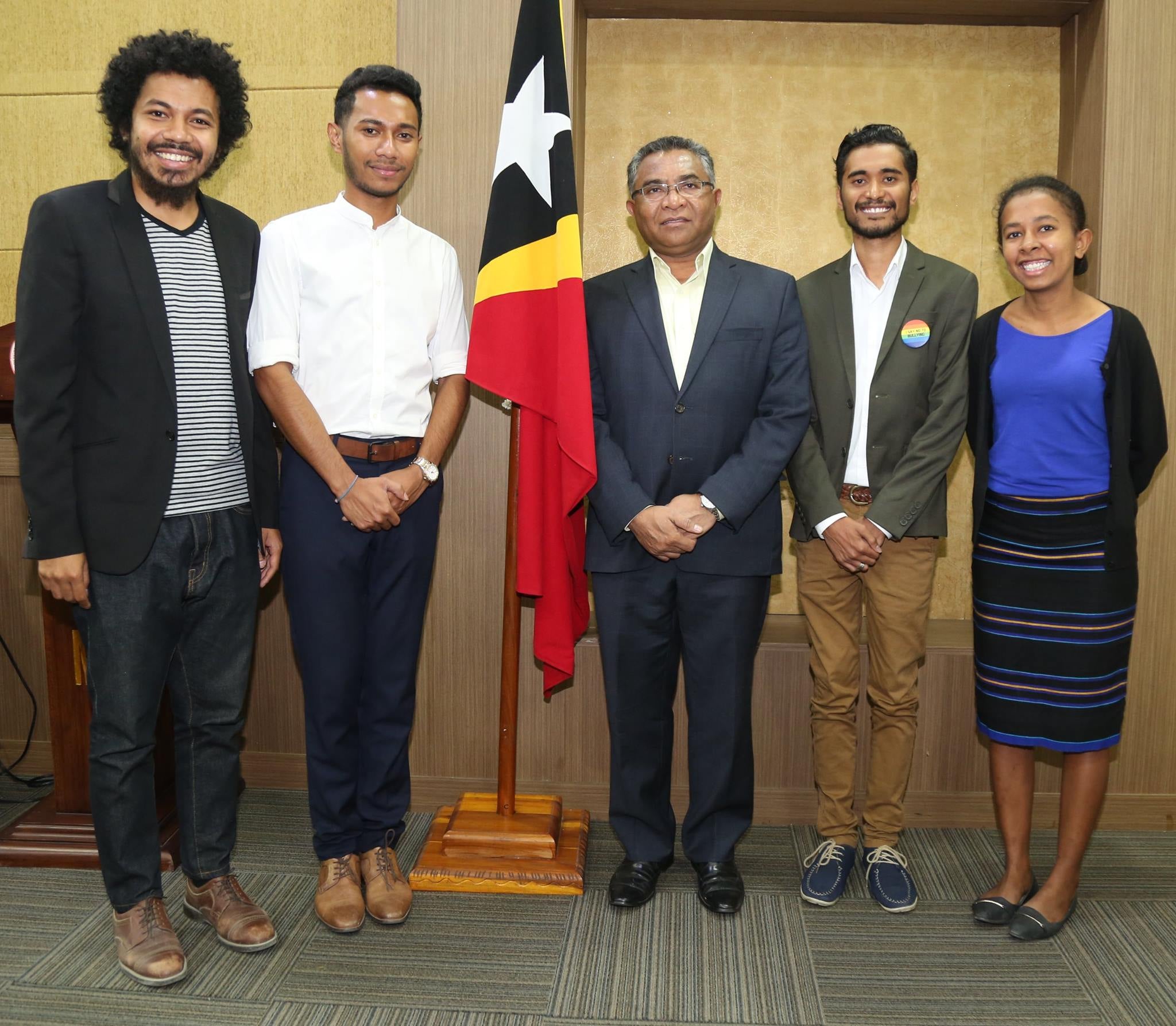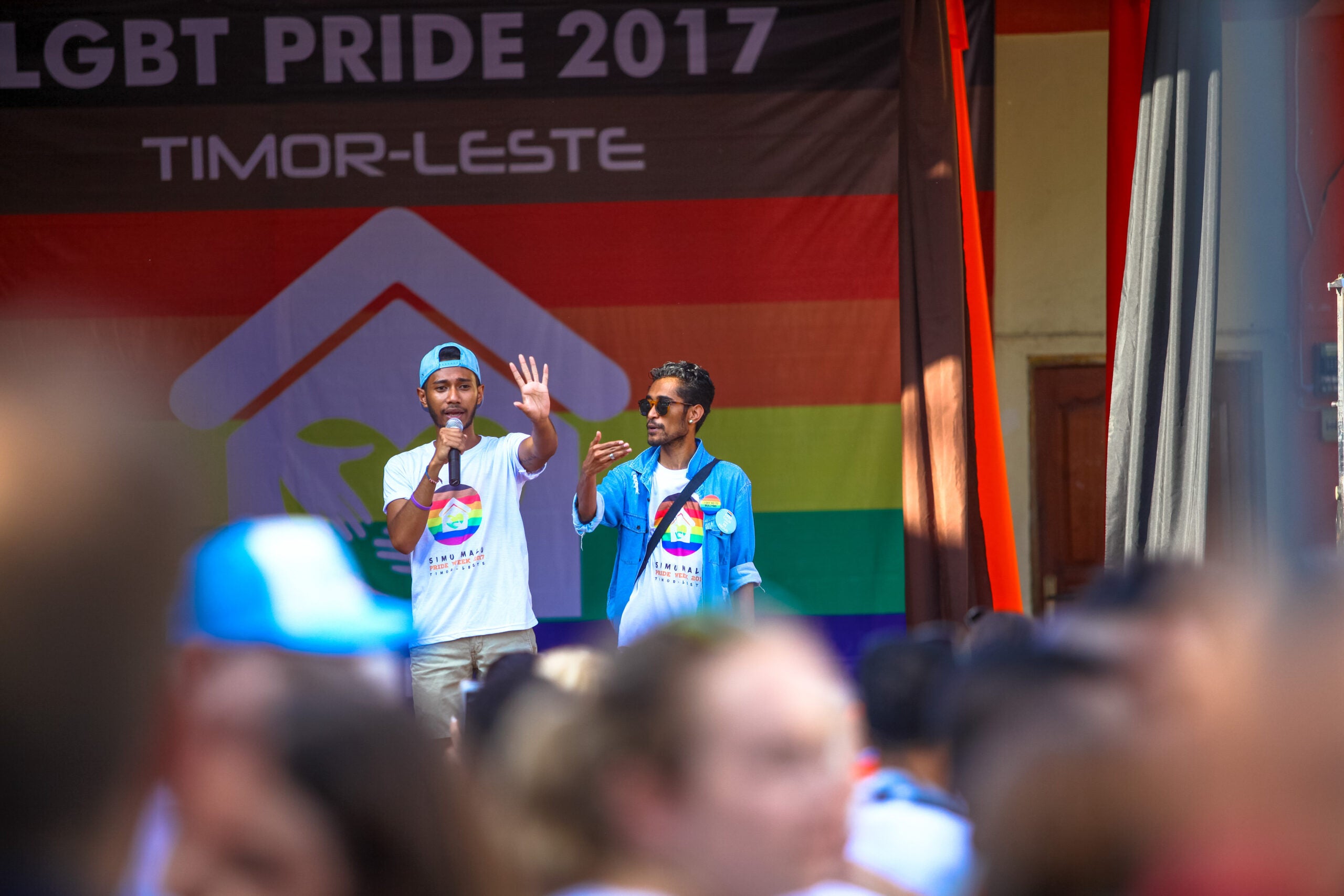The First Step Is Visibility
Nata Guterres ’13 of Dili, Timor-Leste, is a changemaker. At Luther, he developed his own major combining politics and economics. At the time, Timor-Leste was in the process of drafting a strategic development plan for the country, and Nata wanted to cultivate the expertise to help. He earned a master’s degree at the United Nations University for Peace in Costa Rica, then returned to Timor, where he worked as a social inclusion advisor to the Office of the Deputy Prime Minister and now as a specialist for the Asian Development Bank, helping prepare the country for inclusion in the Association of Southeast Asian Nations.

Nata Guterres ’13 and collaborators—including some from Luther—met with the prime minister of Timor-Leste when he recorded a historical video statement for their documentary film, The Road to Acceptance, and for the country’s first pride march (also organized by Nata and others). Left to right: Marfiano Manuel ’16, Pepito Cadalak ’16, prime minister Rui Maria de Araújo, Nata, and a friend, Maria.
But while Nata was eager to help his country, he worried that a return to Timor-Leste might shake his confidence as a recently out gay man. He’d shared his queerness gradually, first to Luther friends while studying abroad during the Nottingham Program, then to relatives in the UK, then to select family members in Timor. But with a population that’s 97 percent Catholic, Timor-Leste can be a challenging place for LGBTQIA+ people to find acceptance.
“The traditional Timorese culture is very heteronormative and patriarchal,” Nata says, “so even without Catholicism, it’s already quite difficult.” After a painful coming-out to his own family, Nata decided to take a bold step to help pave the way for others.
With two friends from Luther, Pepito Cadalak ’16 and Marfiano Manuel ’16, Nata founded a youth group called Hatutan (in English, “to connect”), which led dialogues on queer acceptance and produced awareness videos. They also launched a letter campaign and received a video statement of LQBTQIA+ support from prime minister Rui Maria de Araújo. “That statement really made an impact. It made headlines around the world,” Nata says.
That same week in 2017, Nata and friends organized Timor-Leste’s first pride march. Over the years, the event has grown from hundreds of people in 2017 to several thousand in July 2024. The march now ends at the president’s palace, where this year, president José Ramos-Horta delivered a message of support.

Pepito Cadalak ’16 (left) and Nata Guterres ’13 (right) helped organize Timor-Leste's first pride parade.
This is exactly the kind of visibility and awareness that Nata and others have been working to build. “If you want to create change,” Nata says, “first you need to talk about it.”
The next step, Nata says, is working to change policy. “I want to live in a country where I can feel at home—not just me but all queer people,” he says. As someone who grew up being bullied, he would love to see a policy addressing discrimination and bullying at school based on gender identity or sexual orientation.
He continues, “Sometimes I sit and think about how the things I’ve fought for are so difficult to push through. But looking back, I feel like we’ve achieved so much already. And then I think that even if we go slowly, we can still go forward.”